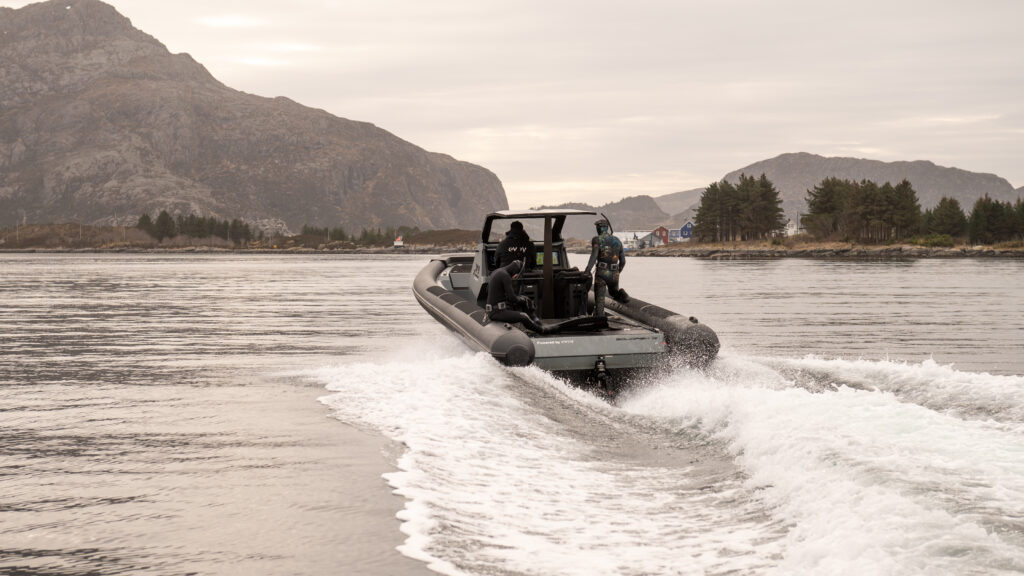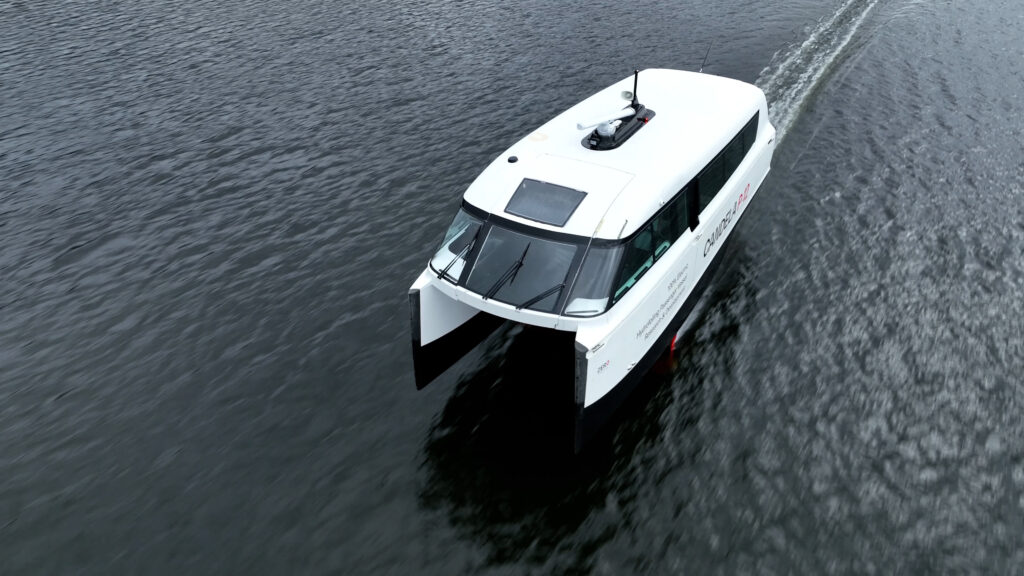The growing legacy of marine startups and investment – how can firms benefit?

Yachting Ventures’ founder Gabbi Richardson discusses the power and potential of corporate venture capital in the leisure marine market.
Early stage investments in startups are crucial for the success of large corporates, particularly in dynamic industries like leisure marine, where innovation is key to staying competitive. These investments provide corporates with access to cutting-edge technologies and new markets that might be challenging to develop internally.
Additionally, investing in startups allows corporates to diversify their portfolios and establish strategic partnerships, paving the way for collaborations on product development, joint ventures, or future acquisitions if the startup proves successful.
Corporate venture capital (CVC) refers to the investment of corporate funds directly into startup companies, usually accomplished through a subsidiary of the parent company that operates semi-independently.
Several corporates are currently investing in the leisure marine industry including Axopar, Beneteau Group, Yamaha, Brunswick and MarineMax. These companies have collectively allocated millions of dollars to invest into emerging technologies and products in this sector, driving innovation forward with real impact.
Yachting Ventures (YV) has been spearheading successful startup showcases at major shows including METSTRADE and IBEX, connecting corporate investors with startups, streamlining the investment process and ensuring access to the best deal flow.
Strategic alignment – startups and CVCs
So, how can CVC benefit both startups and corporates?
Startups in the leisure marine sector can greatly benefit from CVC due to the strategic alignment with the investing company’s business interests.
For example, the recent investment by Axopar into leading marine electrification startup Evoy, which raised a total of €6.4 million in the round, is a clear indication that Axopar sees the future of the industry as electric.
Leif Stavøstrand, Evoy CEO, comments: “At Evoy, we’ve seen how strategic investments boost innovation and growth. Partnering with industry leaders through CVC provides essential funding and opens doors for collaboration and market expansion, driving marine electrification and sustainability forward.

“The synergy between Axopar’s high-quality products, extensive network, and resources, combined with Evoy’s advanced electric motor technology, creates a robust framework for delivering the world’s leading high-output electric boat motor solutions.”
Likewise, Bénéteau Group, Europe’s largest motor boatbuilder, recently invested in electric boatbuilder Candela’s €25 million funding round.
While it’s yet to be seen how the Axopar and Bénéteau Group investments into electrification startups will develop, it’s common for CVCs to engage in co-development projects with their portfolio companies, working together on new products or improving existing ones.
Access to industry expertise
For a marine startup, receiving funding from a major player in the industry not only provides capital but also serves as a strong market validation. This validation opens doors to other potential investors and partners that might be reassured by the established company’s stake in the startup.
Corporate venture arms often offer access to a wealth of industry-specific expertise, infrastructure, and resources that can help a startup scale rapidly. This might include access to manufacturing facilities, R&D capabilities or established distribution channels.
For marine startups, which often deal with complex logistics and regulatory environments, such support is invaluable. Being linked to a CVC can also significantly enhance a startup’s networking potential and can facilitate introductions to other industry players, potential customers and even other investors (for follow-on funding).

For example, Yamaha Marine recently opened a Marine Innovation Centre in Georgia, US, and Yamaha Motor announced a $100 million fund to invest into transportation, robotics, data/AI, fintech/insurtech, and digital health and wellness. This is a clear indication that the corporate sees the potential of investing into startups, and is also evidenced through a number of recent transactions, including the acquisition of electric and hybrid motor developer, Torqeedo.
According to Yamaha, its aim in acquiring Torqeedo is to strengthen its development capabilities in the electric field. This feeds into Yamaha’s marine CASE strategy, which outlines the general direction for the marine products business in the current medium-term management plan. The Torqeedo acquisition is also meant to support and accelerate Yamaha’s efforts for achieving carbon neutrality in the marine industry as well as aid in fast-tracking the establishment of a small electric propulsion lineup.
Aside from electrification, Yamaha also led a €7m series A funding round into Skipperi , a Finland-headquartered shared-use boating subscription service. Commenting on the investment from Yamaha, Skipperi co-founder Anna-Leena Raij says: “Our collaboration with Yamaha Marine began in the early days of Skipperi. After many years of a successful partnership, they became an investor. We share a common vision of the importance of sharing and co-usage in the future of boating.
“We could also clearly see the synergies – Yamaha’s high-quality products, extensive network, and resources, together with Skipperi’s advanced software expertise would create a framework for delivering the world’s leading shared-use boating service.”
Longer investment horizons
Corporations often have the luxury of looking at longer-term returns than traditional venture capital firms, which usually seek quicker exits. This can be advantageous for marine startups where product development and market penetration might take longer than in other sectors. The longer horizon can give a startup the time to refine its products or services without the pressure of delivering immediate returns.
For example, Brunswick Corporation has a joint venture with TechNexus Venture Collaborative, aimed at fostering transformative innovation in the marine industry. TechNexus is known for its expertise in identifying and nurturing early-stage technology ventures, and through the partnership, Brunswick has invested in a number of startups.
“Working with a forward-thinking partner like Brunswick, we are proud to support innovation in marine technologies and electrification,” says Fred Hoch, founder and general partner at TechNexus.
Similarly, in October 2023, Howden Insurance launched Howden Ventures to create an investment and risk incubator that will fast-track insurance product development.
The CVC wants to bring solutions to new emerging risks in a fast-paced, interconnected world. Marine investments are clearly on the horizon, as CetoAI, a maritime predictive analytics startup that identifies machinery breakdown risks earlier than conventional detection methods, recently raised £1.5 million in seed funding led by Howden Ventures.
Exit opportunities
Finally, a startup funded by CVC might find a clearer path to an exit, often through acquisition by the investing corporation.
This can provide a lucrative and straightforward exit strategy for the startup’s founders and early investors, albeit potentially limiting other opportunities like an independent IPO.
Japan-based Yanmar took a majority stake in GetMyBoat, the world’s largest boat rental and water experience marketplace. It is reported that Yanmar sees GetMyBoat as the key player in the growth of the recreational boating industry, with the San Francisco-based company having grown to offer 180,000-plus boats and water experiences across 9,300 destinations.

Yanmar states that this strategic acquisition will help ‘drive its digital transformation across its diverse business domains, while offering the opportunity to identify and monitor developing trends in the recreational marine industry’.
Sascha Mornell, CEO and co-founder of GetMyBoat, adds: “Yanmar’s investment in GetMyBoat has fuelled our international growth, bringing the joy of boating to millions of people worldwide.”
In December 2022, MarineMax, the world’s largest recreational boat and yacht retailer, announced that it would be expanding its technology investments through a dedicated entity, New Wave Innovations. Startups that have already been acquired into the MarineMax portfolio include Boatyard, a leading customer experience platform in the marine industry, and Boatzon, the online boat and marine retailer providing secure direct marketplace services.
At the time of the Boatzon acquisition, Shawn Berg, EVP, chief digital officer of MarineMax and president of New Wave Innovations, commented: “Technology is integral to the growth of the marine industry, and with the acquisition of Boatzon we have added what we believe is the preeminent technology business connecting consumers and marine dealers.”
Nathan Heber, founder of Boatyard, says: “MarineMax’s leadership is committed to investing in driving innovation for the entire industry, not just delivering value within the company. We’ve experienced firsthand how such strategic investments can catalyse transformative change, reinforcing the critical role of corporate venture capital in our sector.”
Startup strategy for success
For startups in the leisure marine industry, raising CVC can be a strategic move that goes beyond capital. It offers access to industry-specific guidance, market credibility, and a supportive network that can propel an early stage startup forward.
However, it’s crucial for startups to ensure that their vision aligns with the corporate investor to fully leverage the benefits without compromising their innovative edge or operational independence.
At Yachting Ventures, we see CVC emerging and growing as a pivotal driver of innovation in the leisure marine industry.
While traditional investors may overlook the space due to the smaller market size, CVC investors are uniquely positioned with the insight, network and resources to drive technologies forward and support startups in successfully co-building products and taking them to market.














